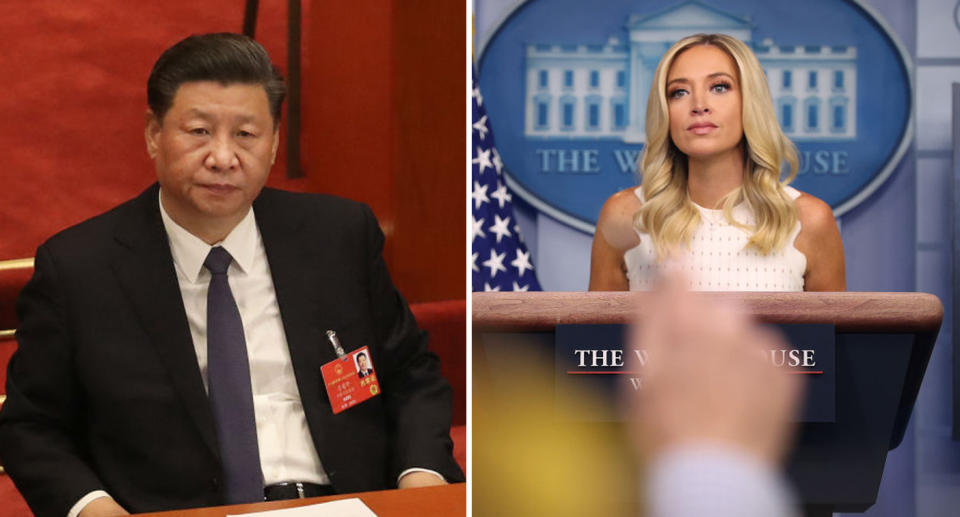'Crossing the Rubicon': America's latest move against China 'no joke'
As tensions between China and Western powers continue to grow, the Asian superpower has reacted angrily at the latest move by the US which has been described as a “crossing the Rubicon” moment.
The Trump administration moved to impose fresh sanctions on Chinese officials late last week due to human rights abuses, relating to the country’s treatment of its minority Muslim Uighur people.
The sanctions were placed on four senior Chinese officials including Chen Quanguo, the Communist Party chief for the Xinjiang region where an estimated one million Muslim Uighurs are under mass detention.

China has been widely condemned for setting up complexes in the region which it describes as “vocational training centres” intended to stamp out extremism and teach new skills.
The United Nations says at least one million ethnic Uighurs and other Muslims have been forcibly detained in the camps after being removed from their families.
Peter Harrell, a former sanctions official at the US State Department and an adjunct senior fellow at the Center for a New American Security, says the moment marks a point of no return for the White House.
“At a political and diplomatic level, this is quite a significant move,” he told ABC Radio National on Monday.
While the Trump administration has been happy to ratchet up trade tensions with China, it has been been wary of sanctioning the rising power over human rights abuses, he said.
“The Trump administration is signalling the days of no action on human rights issues are over, and we will be targeting individuals and others in China involved in human rights abuses.
“At a diplomatic level, this really does represent a kind of crossing of the Rubicon,” Mr Harrell said.
Reportedly described by a senior US administration official as “no joke”, the sanctions are designed to hinder the ability of targets and their family members to move around the world and conduct business.
“These are very targeted measures economically,” Mr Harrell said, however he expressed doubts about their overall impact.
Australia considering its own human rights sanctions regime
The US sanctions were imposed under the Global Magnitsky Act, adopted in 2016, which allows the US to target foreign human rights violators by freezing assets, banning US travel and prohibiting American citizens from doing business with them.
It comes as there have been growing calls for Australia to adopt its own Magnitsky Act – Canada and the UK have similar laws while the EU is currently developing a global human rights sanctions regime.
An Australian Parliamentary Committee is currently considering crafting such laws, a process which has seen involvement from human rights lawyer Amal Clooney, and world champion chess grandmaster and human rights commentator Garry Kasparov.
Elaine Pearson, the Australian director of the global organisation Human Rights Watch (HRW), is among those calling on Australia to craft its own Magnitsky Act.
“Telling rights violators in other countries that they can’t travel to Australia or put their money in Australian banks can have a real impact,” she said.

“By joining other countries with similar laws, Australia will be sending a strong message to abusive leaders everywhere that there are far-reaching consequences for their actions,” Ms Pearson said in February when HRW made its submission to the parliamentary committee.
The US has sanctioned at least 199 individuals and entities from a wide range of countries under the Global Magnitsky Act, according to HRW.
Australia is heavily reliant on Chinese trade which has contributed to caution in publicly criticising the country. Chinese officials reacted furiously in October when Australian Foreign Affairs Minister Marise Payne singled out China over its domestic human rights abuses.
Human rights groups have also pointed to the Australian government’s own record, which has come under heavy scrutiny due to its controversial offshore detention policies, making it harder to point the finger at Beijing.
Do you have a story tip? Email: newsroomau@yahoonews.com.
You can also follow us on Facebook, Instagram and Twitter and download the Yahoo News app from the App Store or Google Play.




